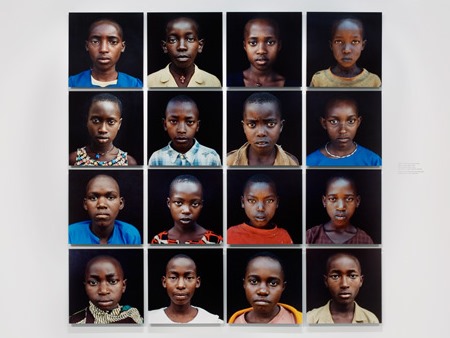The Centre for Global Health and the Department of Psychology at the University of Oslo, with the Peace Research Institute Oslo (PRIO) and the German partners Cologne Business School and GESIS- Leibniz Institute for the Social Sciences, are pleased to invite you to take part in an participatory workshop focusing on increasing the awareness of Children Born of War and their immediate and long-term health care needs.
CBOW are defined as children born as a result of armed conflicts where a local civilian woman is the mother and the father a person directly participating in hostilities, e.g. foreign soldier, para-military officer or rebel or member of a peacekeeping troop. Research evidence indicates that these children are exposed to several interrelated challenges in their life development due to their biological origin and herewith connected discrimination.
Program
5 June 08:30-13:00
Place: Tøyen Hovedgård, Botanical Gardens, Oslo
| Time | Event | Name |
|---|---|---|
| 08:15-08:45 |
Coffee and mingling
|
Chair: Dr. Torunn Tryggestad, deputy director, Peace Research Institute Oslo (PRIO) |
| 08:45-09:00 |
Welcome
|
Professor Andrea S. Winkler, director, Centre for Global Health, professor, Department for Community Medicine and Global Health, University of Oslo Professor Ingvill C. Mochmann, vice president for research and knowledge transfer, CBS, Head of EUROLAB, GESIS |
| 09:00-09.15 |
Opening remark Children born of war – who? Never heard of! |
Professor Ingvill C. Mochmann, vice president for research and knowledge transfer, CBS, Head of EUROLAB, GESIS |
| 09:15-10:30 | Session I: Health related aspects of being a child born of war – some empirical evidence | Chair: Associate Professor Suraj Thapa, Institute for Clinical Medicine, University of Oslo |
| Giving birth in war zones. Mothers' dilemmas, health care and safety | Professor Johanne Sundby, Institute for Community Health and Global Health, University of Oslo | |
| Life situation of former LRA child Soldier soldier mothers and their Children children born of war in Northern Uganda | Dr. Norman Mukasa, Bugema University, Uganda | |
| Health outcomes and human rights: challenges for "children born of war" in post-conflict Bosnia and Herzegovina |
Amra Delic, Department for Psychiatry and Psychotherapy, Universitats Medizin Greifswald; Department for Medical Psychology and Medical Sociology, University of Leipzig; Association Center for the Promotion of Mental Health "Sense", Bosnia and Herzegovina |
|
|
Sick children at war: Common conditions and (lack of) access to healthcare. Examples from Mosul, Iraq and Afghanistan
|
Dr. Monica Thallinger, Paediatrician, PhD, Medecins Sans Frontieres, Oslo University Hospital
|
|
| Open discussion | ||
| 10:30-11:00 |
Coffee break with light refreshments |
|
| 11:00-12:15 | Session II: Sexual Violence in war, reproductive medicine and maternal health – lessons learned from past and present conflict zones | Chair: Professor Andrea S. Winkler |
| Mental health outcomes, stigma and acceptance among women raising children born from sexual violence-related pregnancies in eastern Democratic Republic of Congo: |
Dr. Jennifer Scott, Beth Israel Deaconess Medical Center; Harvard Medical School |
|
| Children Born of Sexual Violence in War: Developing a Research Agenda | Dr. Inger Skjelsbæk, Research Professor, PRIO, Associate Professor, Institute of Psychology, University of Oslo | |
| Organized Violence and Institutional Child Delivery in Sub-Saharan Africa | Dr. Andreas Forø Tollefsen, Senior Researcher, PRIO | |
|
Open Discussion |
||
|
12:15-13:00 |
Panel discussion: Health and foreign policy – how to fulfill SDGs 3 and 5? |
Chair: Professor Ingvill C. Mochmann Dr. Noor Khan, Senior Advisor, Norwegian Ministry of Foreign Affairs - Section for Development Policy Espen Gran, Associate Area Director for the Middle East, Save the Children Norway Professor Andrea S. Winkler |
| 13:00-14:00 | Lunch |
During the workshop you will have the opportunity to test the game “My Child Lebensborn”, developed by Elin Festøy, Teknopilot.
Background
In the past 10-15 years the research field of Children Born of War (CBOW) has developed significantly (Mochmann 2017). CBOW are children born as a result of armed conflicts where a local civilian woman is the mother and the father a person directly participating in hostilities, e.g. foreign soldier, para-military officer or rebel or member of a peacekeeping troop. Research evidence indicates that these children are exposed to several interrelated challenges in their life development due to their biological origin and herewith connected discrimination (cf. Ericsson and Simonsen 2005; Carpenter 2007; Mochmann and Lee 2010). Amongst the challenges is poor access to reproductive health care of the mothers and their (enemy) offspring during and after conflicts. In particular, the health care needs including the psychosocial health of the CBOW have so far received only limited attention within the global health community. The aim of this event is to;
- Present the state of the art on the evidence base available so far on health related issues affecting CBOW and their long term implications;
- Discuss these in the context of findings from more recent/ongoing conflicts where CBOWs are born; such as in Nigeria (Boko Haram), Syria (Islamic State), Ukraine, and;
- Analyze and discuss similarities and differences in health issues related to other groups of children affected by the consequences of war and conflict.
By bringing together researchers, policy makers and practitioners from many disciplinary fields and sectors working in the field of children affected by conflict, the goal of this workshop is to develop an action plan to increase the awareness of CBOW and their immediate and long-term health care needs, and to define first measures to be implemented by relevant actors. This will also serve as a basis for the preparation of a larger international and interdisciplinary research proposal.
Attendance to this event is by invitation only. If you wish to receive an invitation please send an email to nicoline.lokdam@medisin.uio.no.
